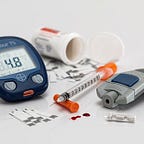The Warning Signs of Vitamin C Deficiency and How to Treat It
Vitamin C, also known as ascorbic acid, is an essential nutrient for the human body. It is required for the growth, repair, and maintenance of tissues, and also plays a key role in the immune system. However, many people suffer from Vitamin C deficiency, which can lead to a number of health problems. In this article, we will discuss the warning signs of Vitamin C deficiency, its risk factors, and the treatment options available.
What is Vitamin C Deficiency?
Vitamin C deficiency is a condition in which the body does not have enough Vitamin C to function properly. This can occur when a person does not consume enough Vitamin C-rich foods, or when their body is unable to absorb or utilize the Vitamin C that they do consume.
The symptoms of Vitamin C deficiency can vary depending on the severity of the deficiency. Mild deficiencies may cause fatigue, weakness, and a general feeling of malaise. More severe deficiencies can lead to anemia, bruising, gum disease, and even scurvy, a disease characterized by skin rashes, joint pain, and tooth loss.
Risk Factors for Vitamin C Deficiency
There are several risk factors that can increase a person’s likelihood of developing Vitamin C deficiency. These include:
- Poor diet: A diet that is low in Vitamin C-rich foods such as fruits and vegetables can increase the risk of deficiency.
- Smoking: Smoking can reduce the body’s ability to absorb and utilize Vitamin C.
- Alcoholism: Chronic alcohol consumption can lead to Vitamin C deficiency by interfering with the absorption of nutrients.
- Certain medical conditions: Certain medical conditions, such as gastrointestinal disorders, can interfere with the absorption of nutrients including Vitamin C.
Warning Signs of Vitamin C Deficiency
It is important to be aware of the warning signs of Vitamin C deficiency so that it can be detected and treated early. Some of the most common signs of Vitamin C deficiency include:
- Fatigue and weakness
- Muscle and joint pain
- Slow wound healing
- Bruising easily
- Dry, scaly skin
- Swollen and bleeding gums
- Anemia
- Nosebleeds
Treatment Options for Vitamin C Deficiency
The treatment for Vitamin C deficiency typically involves increasing the intake of Vitamin C through diet or supplements. Good sources of Vitamin C include citrus fruits, berries, kiwi, mango, papaya, pineapple, broccoli, Brussels sprouts, tomatoes, and peppers.
For those who are unable to get enough Vitamin C through their diet, supplements can be taken. However, it is important to speak with a healthcare provider before starting any new supplements to ensure that they are safe and effective.
In severe cases of Vitamin C deficiency, intravenous (IV) Vitamin C may be required. This is typically reserved for those with scurvy or other serious complications of deficiency.
Conclusion
Vitamin C deficiency is a common condition that can have serious health consequences if left untreated. If you are at risk for Vitamin C deficiency, it is important to be aware of the warning signs and seek medical attention if you experience any symptoms. By increasing your intake of Vitamin C through diet or supplements, you can reduce your risk of developing deficiency and maintain optimal health
